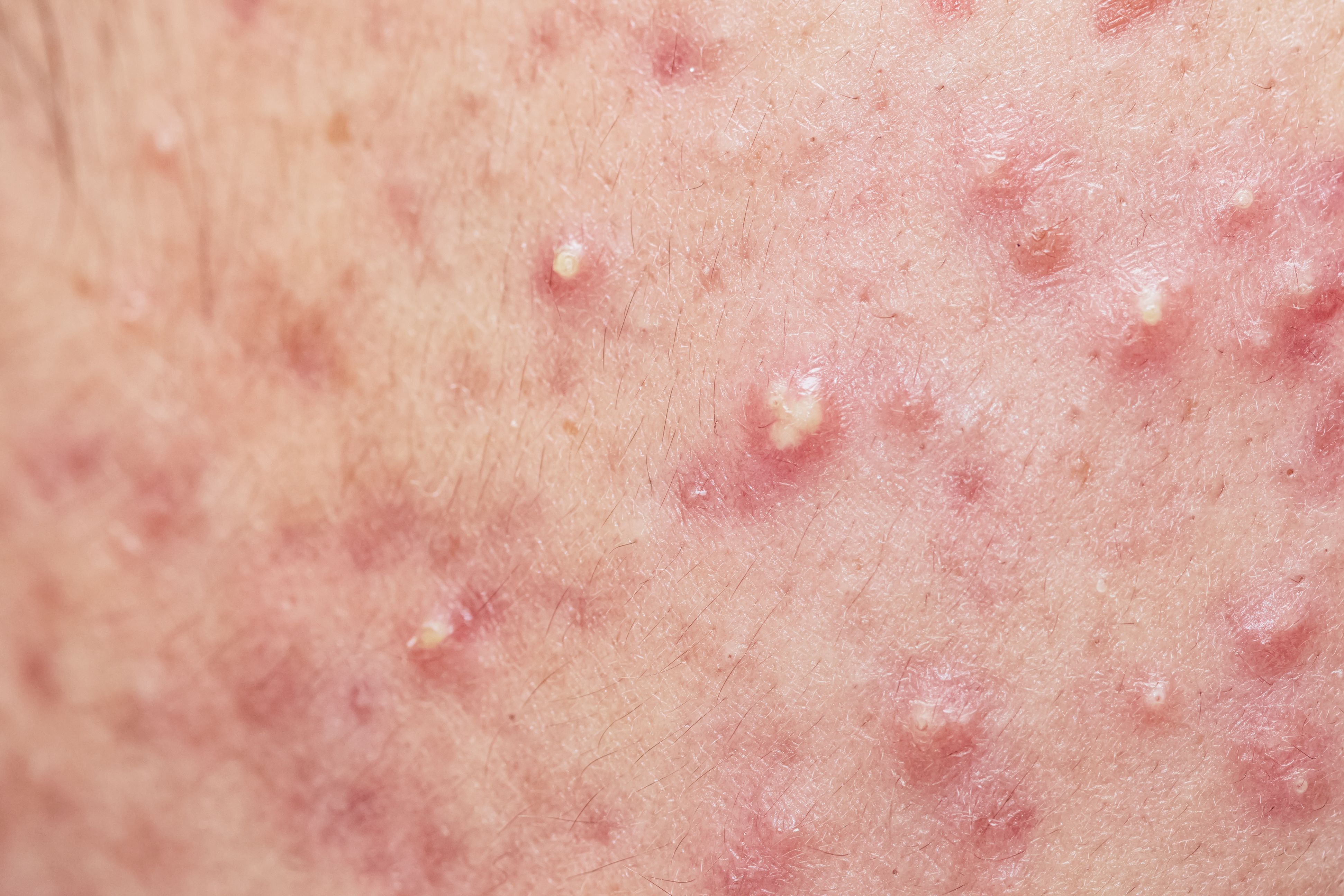- General Dermatology
- Eczema
- Chronic Hand Eczema
- Alopecia
- Aesthetics
- Vitiligo
- COVID-19
- Actinic Keratosis
- Precision Medicine and Biologics
- Rare Disease
- Wound Care
- Rosacea
- Psoriasis
- Psoriatic Arthritis
- Atopic Dermatitis
- Melasma
- NP and PA
- Skin Cancer
- Hidradenitis Suppurativa
- Drug Watch
- Pigmentary Disorders
- Acne
- Pediatric Dermatology
- Practice Management
- Prurigo Nodularis
Article
Isotretinoin: Time to reconsider blood test best practices
Author(s):
While oral isotretinoin has been associated with various side effects and routine blood tests have been recommended, evidence points to inconsistencies in monitoring practices. Many physicians also are questioning whether the effort has value.
Isotretinoin (Accutane) revolutionized the world of acne treatment when it appeared in the 1980s. More than three decades later, it remains a mainstay in the United States despite continuing fears about miscarriages and birth defects. At the same time, it remains a hassle for many patients.
In addition to enduring common side effects like dryness, patients often must follow up with regular, ongoing blood tests. And, not all dermatologists consider the tests to be necessary.
EDITORIAL: Can we cut back on lab tests?
Skepticism about testing is mounting. In the January 2016 issue of JAMA Dermatology, a meta-analysis questions the need for monthly tests.[1]
â€ÅWe hope this study is an opportunity for providers to change their approaches to isotretinoin monitoring,â€Â says study co-author Joslyn S. Kirby, M.D., M.Ed., M.S., associate professor, Pennsylvania State University, University Park, Penn.
Health risk realities
At issue: Does isotretinoin really pose a risk to health that can be monitored via blood tests? Dermatologists assumed there was a risk when the drug first appeared on the market. Indeed, â€Åthere are clear associations between systemic retinoids (synthetic vitamin A, including isotretinoin) and hepatitis, hypertriglyceridemia, and leukopenia,â€Â says Arash Mostaghimi, M.D., M.P.A., M.P.H., instructor in dermatology and internal medicine, Harvard Medical School, Boston, Mass.
â€ÅWhile these are class effects, the data, specifically for isotretinoin, are limited. The goal of testing was to monitor for these unlikely but potentially serious side effects,â€Â Dr. Mostaghimi says.
But guidelines for monitoring aren̢۪t clear.
â€ÅThe package insert recommends baseline fasting lipids and hepatic panels with repeated testing at weekly or biweekly intervals until ‘the response has been established,’â€Â Dr. Kirby says. â€ÅThere are no specific recommendations for monitoring of blood counts.â€Â
Indeed, Dr. Kirby says the inspiration for the study came from her encounters with varying approaches to labs for isotretinoin patients.
â€ÅI performed tests monthly, earlier in my career, because the people around me were doing the same thing. After moving to Penn State, people around me were testing less frequently based on their accumulated experience,â€Â she says. â€ÅThis highlighted the effect of local practice on my decisions and the variability in practice patterns among groups, and it prompted me to look for high-level evidence to guide my decisions. I developed this study based on what I found.â€Â
NEXT: Hard data
Hard data
The researchers evaluated data from 61 studies and included 26 of them in the meta-analysis. The mean (99% CI) values during treatment were:
- 119.98 mg/dL (98.58-141.39 mg/dL) for triglycerides, which puts them in the â€Ånormalâ€Â range.
- 184.74 mg/dL (178.17-191.31 mg/dL) for total cholesterol, which puts it in the â€Ådesirableâ€Â range; 109.23 mg/dL (103.68-114.79 mg/dL) for low-density lipoprotein (LDL) cholesterol; 42.80 mg/dL (39.84-45.76 mg/dL) for high-density lipoprotein (HDL) cholesterol. The LDL (â€Åbad cholesterolâ€Â) level is â€Ånear optimal/above optimal,â€Â and the HDL (â€Ågood cholesterolâ€Â) level is just above the â€Ålowâ€Â level that’s considered risky.
- The levels were 2.67 U/L (19.94-25.41 U/L) for aspartate aminotransferase; 21.77 U/L (18.96-24.59 U/L) for alanine aminotransferase; 88.35 U/L (58.94-117.76 U/L) for alkaline phosphatase; and 6890/õL (5700/õL-8030/õL) for white blood cell count.
Overall, the meta-analysis linked isotretinoin to statistically significant changes in the values of lipid, white blood cell count and liver panels. However, the researchers say the levels don̢۪t put patients at high risk, and few patients overall had abnormal lab findings. As a result, the researchers say, the meta-analysis doesn̢۪t support routine monthly lab tests for the standard patient.

Dr. OrlowSeth J. Orlow, M.D., Ph.D., professor and chair of dermatology, NYU School Medicine, New York, N.Y., says the message of the study is clear: â€ÅThe frequency and particularly the severity of abnormalities like liver function elevations, blood count changes and lipid levels seen in the average patient on isotretinoin do not warrant routine frequent testing.â€Â He cautions, however, that monthly pregnancy testing is still essential for women who could bear children.
Eliminating the routine blood tests in most patients could bring other benefits in addition to monetary savings.
â€ÅSome patients understand testing to check for a potential problem to mean there is a high likelihood of that problem and perceive that, for example, isotretinoin is a particularly liver toxic drug,â€Â Dr. Orlow says.
In addition, â€Åmany patients are afraid of having blood work and this can dissuade them from using otherwise effective therapy,â€Â says Harvard’s Dr. Mostaghimi.
But he cautions that the tests shouldn̢۪t be abandoned entirely.
â€ÅIf you have a patient who is at higher risk or has previously had problems with similar drugs, then more thorough testing may still be appropriate,â€Â he says. â€ÅGiven that the likelihood of all serious side effects is low, continued research that identifies genetic variations or biomarkers that can differentiate those at high risk will be valuable in guiding our approach moving forward.â€Â
[1] Lee YH, Scharnitz TP, Muscat J, Chen A, Gupta-elera G, Kirby JS. Laboratory Monitoring During Isotretinoin Therapy for Acne: A Systematic Review and Meta-analysis. JAMA Dermatol. 2016;152(1):35-44.





